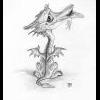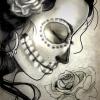-
Posts
457 -
Joined
-
Last visited
About Hux

Profile Information
-
Reading now?
The Plague - Camus
-
Gender
Male
-
Interests
Books, Writing, Dachshunds, Star Trek, Football.
Recent Profile Visitors
1,705 profile views
Hux's Achievements
Proficient (10/14)
-
Rare
-
Rare
-
-
-
Recent Badges
-
Night Train to Lisbon (2004) Pascal Mercier A 57-year-old Swiss academic named Gregorius encounters a beautiful Portuguese woman on a bridge which, in turn, results in him ending up in a bookshop where he purchases a book by an obscure Portuguese author named Amadeu de Prado which leads to such a fascination with his work, his ideas, and his writing, that he feels compels to get on the night train to Lisbon and investigate who this man was. In Lisbon, he meets the writer's elderly sister, his best friend, his priest, and learns about the resistance movement under the Salazar dictatorship. All the while, he is translating Prado's work (sections written in italics) and becoming increasingly fascinated by the man's life. Okay, so this was (initially) very easy to read and I was enjoying myself for the most part but as the book went on I had two very distinct problems. Firstly, the book never really goes anywhere and you can sense that is has no intention of going anywhere from very early on. It just goes around in circles and repeats the formula (Gregorius meets sister and learns more, Gregarious meets his old best friend and learns more, Gregarious meets such and such and learns a little more, etc etc). But the second (and much bigger problem) is the writing of the fictional Amadeu de Prado. This man's writing is apparently of such an exquisite standard, with such lyrical prose and philosophical musings, that it inspires our main character to change his life and contemplate the very meaning of human existence. Except... it just isn't. It's rather banal and laughable. It comes across as something an angsty teen would write on discovering Marx and offers up such dull and cliched cod philosophy that you wonder what Gregorius (an intellectual academic) could possibly find so compelling. At one point Mercier (as Gregorius) even says this about Prado's (actually Mercier's) writing: LOL. No, it didn't. It seems very evident to me that Mercier read The Book of Disquiet by Pessoa and was so inspired by it (and why not, it's great) that he concocted this story of a man discovering the work and going to Lisbon. But Mercier had two choices here: Simply make it about Pessoa or (given his need for a more obscure writer) simply don't show us the text that your fictional writer has produced. Let the reader simply imagine how beautiful and profound it must be. Instead, he chose option three and wrote his own stuff under the name of Prado and (massively) overestimated how good it was. Anyway, the book was okay but nothing more. Easy to read but mostly forgettable. By the halfway point, I was pretty much done with it. Oh well. 6/10
-
...of too many milkshakes.
-

Getting back into reading/suggestions please
Hux replied to DenzelDizzle's topic in Book Search and Reading Recommendations
Post Office -

Getting back into reading/suggestions please
Hux replied to DenzelDizzle's topic in Book Search and Reading Recommendations
If you like Bukowski and Palahniuk, I would recommend Houellebecq. -
Three Trapped Tigers (1967) G. Cabrera Infante I searched for this book for a long time and could never find a copy eventually having no choice but to accept a second hand copy that had crisp, yellow pages (perhaps after decades of being in a bedsit where a man (let's call him Leroy) smoked forty roll-ups a day). In a strange way, the sickly mustard hue almost suited the book and made me think of sun drenched beaches and cigarette filled bars. I so wanted the book to be something glorious but, alas, it was nothing more than another febrile mess of Joycean mimicry not even attempting to masquerade as anything else. Infante can write but (like so many of his contemporaries) he made a choice of style over substance, to squander his talent by dismissing the opportunity to create a great work that would appeal to the world in perpetuity, instead focusing on ensuring that he would appeal to seven esoteric hipsters with names like Zac and Blane in a Seattle coffee shop who, on reflection, would eventually grow tired of their own performative claims of loving him anyway. The book is vague, incoherent, meandering, and unforgivably dull. I am reliably informed that the book is about three young people in Havana. But honestly, if you told me it was about ten people or just one, I wouldn't be able to categorically confirm or deny the assertion. I had no idea what was happening, who was speaking, what people looked like, where things were taking place, or how any of it connected. Some parts were easy to read but I still had no context for what was going on or why it should matter to me. I couldn't even tell you the name of one of the narrators (I think one of them might have been a photographer called Codac) but I lost interest by then because amid the skittish chopping and changing, we also have some stream-of-consciousness prose (because obviously) that adds very little and only further muddies the waters. I think there was one solitary page where I found a beautiful sentence (describing the nightclub singer) and Cabrera does a decent job of generating a sense of heat and tropical sweat on various sunburned bodies, but that aside, I simply found the writing to be immensely dull and repetitive. That damn James Joyce has a lot to answer for. There may be others out there who will like this so I would still recommend it but I found it extremely difficult to engage with. What makes it so frustrating (again) is the fact that Cabrera can clearly write but chose to do this instead. It's all just so tiresome. For all the inventive stuff thrown in (a mirrored page of backward writing, an upside down pyramid of writing, a few lists (because these kinds of books must always have lists) and several disjointed chapters that break things up for brevity), Cabrera never really considers the possibility that entertaining me me might also be an inventive thing to do. Sigh. 4/10
-
The Strangers in the House (1940) Georges Simenon This is Simenon's bread and butter, a murder mystery, an investigation, a trial. But on closer inspection it's actually about a man waking up after 18 years of hiding from the world. Hector Loursat was a gifted lawyer, married with a young baby when his wife suddenly ran off with another man. He has since spent the next 18 years in his enormous dusty mansion avoiding the world. He has no relationship with his daughter Nicole nor any of the servants that come and go including the dwarf Josephine who is essentially tasked with running the house. He is a broken man, an alcoholic, waiting for nothing. Then he hears a shot somewhere in the house and discovers a body. What follows is a murder investigation that reveals a world unknown to him, the world of his daughter and her friends. They have apparently been having parties in his house, drinking, dancing, falling in love, without him ever knowing (or wanting to know) about it. Suddenly, he is forced to wake up, to find out what happened, to discover who these people are that have been sharing his house. But most of all he is finally finding out who his daughter, a total stranger, also is. Very quickly, her lover, Manu, is accused and Loursat agrees to defend him. He drinks less, he leaves the house more, he opens his eyes. It's well written and very interesting but ultimately it wasn't anything special. Under normal circumstances you might dismiss it as a basic procedural, a murder mystery (not something I'm interested in), but for the fact that it's more about Loursat than anything else. Which is its saving grace. A nice little tale about middle-aged man regaining his life. 7/10
-
Platform (2001) Michel Houellebecq At first glance, it seems as though Houellebecq never writes about anything substantial. His novels are full of unrealistic sex and judgemental opinion, but by the end of the book, he's essentially predicted the fall of western civilization, the coming Islamic threat, and the continued hostility between the genders. He has his finger pretty much on the pulse but given that his conclusions are not in the spirit of the banal liberalism and progressivism we demand, they tend to get people riled up. But he continues to be the only writer saying something interesting. And he's funny. There's a part of the book where he describes a woman's vaginal grip as akin to trying to remove a Lego from the hand of a retarded boy. Well, it made me laugh. The story begins with the narrator's (Michel's) father being murdered. It's solved very quickly (dad was fudgeing the Arab maid and her brother killed him). He uses this time to go on holiday to Thailand with a package tour including several other French people to essentially have sex with prostitutes. When he returns to France, he and Valerie (a 27-year lesbian woman also on the tour) shack up together in Paris. She works for a tourism company and her boss Jean-Yves is tasked with improving the company's tours. The three of them go to Cuba to assess why the resort is failing. Michel suggest he makes the tours more sex based and Jean-Yves agrees. Then they go back to France. Then Valerie wants to retire to Thailand. Then there's an insane ending. I really enjoyed the book. It kept making me laugh. Especially the sex scenes which are ludicrous and pure fantasy on Houellebeq's part. Prostitutes love to orgasm apparently. And they orgasm very easily. And women (like Valerie) love threesomes and open relationships (like most women). The whole thing is absurd but immensely fun and laugh-out-loud (reminded me of Celine's Death on Credit when the head teacher's wife aggressively shags little Celine). Pure fantasy but overtly so (and should be read in that spirit). Published before 9/11 or the attacks in Bali, Houellebecq predicts the rise of Islam (with more to come in Submission) and once again, as he always does, reiterates that western civilisation has lost its way and produced a method of living that is cold, soulless, and unsustainable. I always find something to like in his work. He is just my level of filth. 8/10
-
The Magic Mountain (1924) Thomas Mann Hans Castorp goes to visit his cousin Joachim at a sanatorium in Davos, Switzerland. His intention is to stay for three weeks but his own health has its issues and he ends up staying longer. Much longer. At the sanatorium he encounters several characters who (wouldn't you know it) all seem to represent a certain worldview (including Joachim) and like to speak (at length) about these ideas and opinions. The most prominent among them is Settembrini (humanism, liberal democracy, etc) and then later his counterpart Naphta (Commie garbage) and much later (towards the end in fact) Peeperkorn (aristocracy, Dionysian). Then we have the Russian lady Clavdia Chauchat (hot cat!) who, obviously, is a hot throbbing sexpot representation of temptations and lust and so on. These characters all live in the sanatorium and engage in verbose dialogues that explore the slow destruction of Western civilisation as it succumbs to an era of extremists (which tends to happen when things get boring (see modern day for example)). Castorp (and Mann) can see what's on the horizon and though the book takes place before the first world war, it was obviously written after and yet (despite that war being behind us) Mann can see further problems ahead. He is concerned for the soul of Europe and sees that we are doomed. My own interpretation of the book is that life at the sanatorium represents the human condition. We take a rest at this place (life) and delude ourselves into thinking that once we are well, healthy and strong, we can go out into the world when, in reality, we are never well, never healthy, and we are simply waiting for death to come. Why get better simply to go and die? There is no getting better. There's just being unwell then death. You're welcome. And Castorp (we assume) does indeed end the book by going off to the war. So if you like weighty books that explore big themes, you should read this. That being said... I found it rather oppressive and dull. I've read whoppers before and found them engaging. My best comparison being Musil's 'The Man Without Qualities' which I enjoyed a lot. It explored the same big questions but did so by giving us a myriad of characters who push the narrative in different directions with new scenarios. It allows you (the reader) to take a breath as you dig into the next mammoth philosophical debate and adds colour to the proceedings. The Magic Mountain doesn't. It's just the same people at the sanatorium talking endlessly. There are no new environments or developments, only relentless weighty conversations between characters that never really feel entertaining so much as voyeuristic and deliberate. And there's a great deal of pondering from the narrator (Mann) about things such as time (that one is fairly interesting) and life in general. He tends to start each chapter with a few paragraphs of opinion. The amount of investment you must offer for such minor rewards is a heavy ask. I struggled all the way through and never really enjoyed the experience. Sure, it's a great work and well written (though never beautiful in my opinion) but it's less of a book and more of a lecture. You will need to properly invest and frankly, I don't want to (not unless you make it a lot more entertaining). Would I recommend it? Probably not. If you're going to investigate politics, history, philosophy etc then you should probably do it without the need for a somewhat banal fictional narrative surrounding it. Ultimately, this is a book that should be studied, not read. 5/10
-
my head. Once completed....
-
Journey by Moonlight (1937) Antal Szerb Mihály and Erzsi are on honeymoon in Italy. While in Venice, they bump into his old friend Szepetneki (conveniently bumping into people who can push the narrative along is a recurring theme here) and this leads to Mihaly telling Erzsi a long story about his younger days with Tamás, his sister, Eva, Ervin and Szepetneki. Predominantly it is the suicide of Tamás and the disappearance of Ervin and Eva that are of note Mihaly gets off the train at a station and they are separated. At this point Mihaly decides to have a breakdown and shack up with am American girl called Millicent and travel around Italy alone. Erzsi goes to Paris and things happen there but whatever. Then Mihaly bumps into Ervin and then later bumps into Eva and so and so forth (thank goodness he keeps bumping into integral characters). It was all rather forgettable. I'm not sure what the book was exploring, maybe grief, nostalgia, loss of youth, or just the inability of men to grow up. Who knows. It was very easy to read and I enjoyed the first two thirds but was losing interest towards the end. The book has a kind of magical realism (no thanks) which goes hand-in-hand with another literary trope I loath... the mystery. The book has Mihaly searching for Eva (what happened to her) and she seems to flitter in and out like a ghost and it's mostly annoying because books with a mystery element ALWAYS disappoint. The resolution is always dull. So, you know... get on with it! Anyway, I really enjoyed the first half (very easy to read and fun) but became increasingly bored as it went along. I suspect Szerb was playing with ideas of capitalist ennui (he uses the word 'bourgeoisie' several times so you really get the point) and the rise of fascism and youthful exuberance and blah blah but the fact remains, Mihaly comes across as a spoiled middle class tool. 'Please send money so I can continue swanning about Italy and being weirdly nostalgic for a period of life that was less than a decade ago.' The ultimate content of the book irritated me (banal middle-class navel gazing). But it was an easy read and had some nice moments and went along at a pace so I would still recommend it. In fact, I suspect most people will like this book quite a lot (certainly more than I did). 7/10
-
The Snow Was Dirty (1948) Georges Simenon There was a beach for Mersault (The Stranger) and Ozo (No longer Human). But for Frank Friedmaier it is snow, old, dirty and hardened snow. In many ways, I think Frank made more impact on me because while he is detached, lost, and unable to access human emotions, there is a strange glimmer of hope, of light, of a possibility that he might be in there... somewhere. Additionally, he doesn't feel sorry for himself and always maintains a stoicism yet has a vulnerability which is tangible. I found it hard to truly care for the soulless Mersault or the cowardly Ozo but Frank made me want to cry. He knows his fate better than anyone. He reached me. Which is all the more perplexing (and impressive) because Simenon uses third person narration (albeit a very close third person narration) as opposed to the more obvious choice of first person. But you hardly even notice this. Anyway, the story opens with a young nineteen year old boy called Frank who, as a petty criminal, has decided that he must commit a murder. For no particular reason, simply because it is a necessity of the world he inhabits. Later, there is a robbery and another murder, this one possessing a past connection to Frank. Meanwhile his mother, Lotte, runs a brothel and Frank has sex with the girls as and when he chooses. He never refers to his mother as mum but always as Lotte. Then there is the sixteen-year-old girl, Sissy, his neighbour, who becomes infatuated with Frank, loving him almost from the first instance. But again, he feels nothing for her. In fact, he organises for one of his criminal pals (Kromer) to have sex with her in his dark bedroom whilst letting her think it's actually Frank. This is just how cold and unfeeling Frank is. How broken. How remote. Or is he? Because this appears to be the event that breaks something in Frank. He begins to obsess over Sissy's father, turning him into a strange symbol of redemption, craving him as his own father. He maintains his aloof coldness but as I said, there is a glimmer of light, a possibility of his soul and humanity finally emerging. But it all comes too late as Frank is arrested (for which specific crimes we don't know). But his time is up. And he knows it. Throughout the book there are vague references to war and an occupying force in the (equally vague) country but Simenon is (I believe) deliberately turning the environment into something obscure and nightmarish. It could be any country, any occupier, any war. It could be any nineteen year old boy. And it could be any bleak dirty snow that covers the landscape of his wasted life. Yes, the book slams on the breaks at the end with the interrogation chapters (far too many of them) but by that point, I was already in love. I now place Frank with Mersault and Ozo and continue my search for more of our lost brothers. Magnificent. 10/10
-

Your Book Activity 2024
Hux replied to lunababymoonchild's topic in Book Blogs - Discuss your reading!
Bought a second hand version of 'Three Trapped Tigers' by Cabrera Infante. Not sure what to expect in terms of quality but I've been looking for this book forever and this appears to be my only option. -
Zorba The Greek (1946) Nikos Kazantzakis The story of two men who go to Crete and mine Lignite and spend their days on the beach. The narrator (the boss) is a bookworm and thinker but his new friend, Zorba, is inclined to be more passionate and wild. They spend their evenings drinking, singing, talking of life. And that's essentially the plot (save for some rather bizarre events towards the end of the book that slightly lost me). Kazantzakis does a great job of creating the scene, you can hear the waves, feel the sun, smell the wine, and hear the laughter. Zorba is a man who believes very much in living now. And he encourages the boss to embrace this worldview before it's too late. Overall, I enjoyed the book but was never blown away by it. Kazantzakis is a wonderful writer and has moments of exceptional prose but the book is very dialogue driven so the language is predominantly straight-forward discussions between the men. But when Kazantzakis allows the boss to think about things alone, to articulate his thoughts, the writing becomes sublime: After a while, you become lost in the Mediterranean shimmer of light and the drinking of wine. You settle in and enjoy their company, listen to these two men discuss philosophy and existence while Zorba endeavours to teach the boss that life has no meaning and can only be experienced in the here and now. As such, I kept hearing that song: 'The Whole of the Moon' by the Waterboys in my head. It seemed to sum up their relationship: The boss wants to learn. Zorba wants to live. 'I spoke about wings, you just flew.' 7/10
-
Paris Trout (1988) Pete Dexter I generally avoid plot driven novels because they often have little to say about the human condition but are -- as they are designed to be -- immensely fun to read. This one was very good and swept me along quite nicely until I was fully satisfied and entertained. But the downside to plot driven books is that they don't live long in the memory and rarely posses any language or writing that is especially significant. But every now and then an entertaining yarn is all you really want or need. And on that score, this is great. It's the 1950s and we're somewhere in the deep south of shucks y'all, yee-haw America. Paris Trout is a racist who, after loaning a car to a young black man and not getting paid, turns up at his house with his henchman Buster Devonne, and shoots the mother and a 14-year-old girl called Rosie Sayers. What follows is a community in denial, a complicity, and a trial that leads nowhere. Trout is never really punished because of his power and influence and because the society he lives in doesn't really put any value in a black person's life. It's a story you've read/seen a million times before (from America especially) and it's quite purposely designed to get your back up. Paris Trout, for example, is cartoonishly evil. Not only is he a racist and murderer but also a misogynist and abuser of his own wife. Dexter really lays it on thick and lets you hate Trout from the word go until you start to enjoy it. There are no redeeming features, just relentless villainy to get your teeth into. As such, it's somewhat manipulative and predictable as a story but -- as already stared -- enormously enjoyable to read. There is only one part of Trout's life that indicates he is more than just an unthinking monster and that's his ailing elderly mother who lives in a nursing home. He often visits her and, at the climax of the book, uses her in his last line of defence. But even this throws no real light on Trout as a person or his motivations. I suspect the book is more about the community ignoring his actions (and therefore being complicit in them) than an exploration of why those actions occurred in the first place. So yeah, of no real literary significance but a good old-fashioned and entertaining romp. 7/10
-
The Green Face (1916) Gustav Meyrink This was both strange and creepy. I'm tempted to describe it is a horror novel but it goes beyond that and is more surreal and disturbing. It reminded me a little of 'The Tenant' by Torpor in the sense that it was just a little unnerving and obscure. Written at the height of the war in 1916, the book actually takes place after the war has ended and implies (quite correctly as it turns out) that the consequences of this war will change the world and lead to even greater upheaval. Especially, Meyrick predicts, for the Jews. A man named Hauberisser lives in Amsterdam and visits a magic shop where he encounters a creepy old Jew who works there. As the book goes along, his friends and others have also seen this 'wandering' Jew either in paintings or in real life. He has a green, bronze face and seems to be neither a harbinger of good nor bad. What follows is Hauberisser trying to make sense of what he has seen and what it might mean. He returns to the magic shop only to discover that it has a new name and no-one knows anything about the Jewish bookkeeper. Meanwhile, Hauberisser has a friend named Pfeill who has friends who appear to be in a spiritualist cult. One of them is murdered by a Zulu warrior (did I mention there's a Zulu warrior?). Then he meets a woman called Eva who he instantly falls in love with (there follows a chapter where the Zulu warrior follows her and tries (via some African magic) to control and rape her). She then disappears. But reappears in a haze of fog and dies. I mean... it's all a bit weird and hard to explain. But it's good. I enjoyed it a lot and was fascinated by the creepiness of it all. There are huge swathes of Jewish and Christian myth involved and, to be fair, those parts of the book were the only ones that I didn't care for. I find it hard to take religion seriously especially when it takes itself so seriously. Meyrink throws a lot of this stuff at the reader and talks about Elijah and Cabala and a bridge from this world to the world beyond. From a religious point of view it didn't interest me. But from a creepy novel point of view it was highly effective. A strange and interesting book. 7/10






